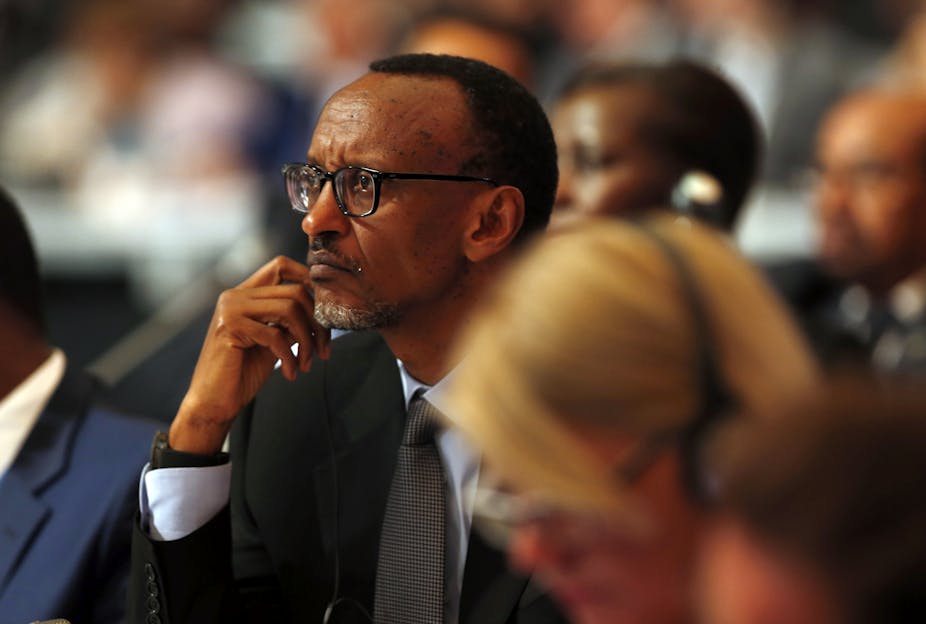American foreign policy in East and Central Africa has remained relatively consistent since the 1990s. The Clinton, Bush and Obama administrations worked with what President Bill Clinton called a “new generation” of African leaders to stabilise the continent and entrench market-focused economic development policy.
US assistance included foreign aid for education, health care, governance and human rights advocacy.
But foreign aid did not cover humanitarian crises when African states fell into chaos because of wars, massacres and genocide. In times of conflict, America has been largely absent. The Mogadishu line – when 18 US soldiers died in a raid in 1993 – still informs America’s hesitation to use military force in Africa for missions that extend beyond state interest and security. Rwanda experienced this first hand during its 1994 genocide.
Now the advent of Donald Trump as US President is bringing America’s traditional approach to East and Central Africa into question. Trump has already departed from or questioned standard practice within US foreign policy. For instance, he threatened to end the “one China” policy, though he later backed down. Other examples include his inauguration speech, in which Trump used the now-infamous slogan “America First”.
In terms of policy since taking office, Trump has already made an impact on Africa by including three African countries – Libya, Sudan and Somalia – in his immigration restriction policy. Does this suggest a true shift in US foreign policy? It is probably too early to tell. But if Trump remains true to his “America First” approach in his relations with Africa, the US could abandon its social development initiatives.
The foreign aid resources could instead be used to promote US interests in Africa. For Rwanda, this might be a welcome change as it could introduce a more honest and economically beneficial relationship between the two countries.
Good news for Rwanda
Their first point of confluence has to do with leadership. Trump and Rwandan President Paul Kagame understand the importance of nurturing relationships between the state and business leaders to promote job creation, innovation and economic growth. Kagame’s engagement with CEOs and business leaders is well documented in Rwanda Inc, a book by Patricia Crisafulli and Andrea Redmond.
Like Trump, Kagame invites business leaders to the Presidential Village in the capital city of Kigali and commits to encouraging their investment and expansion in Rwanda.
Since he assumed the Presidency, Trump has employed a similar strategy. This mutual commercial worldview will likely benefit US/Rwanda relations.
Second and perhaps most important, the Trump administration is likely to break from the past when US foreign policy was tied to moral considerations and the idea that America was obligated to help Africa develop.
Trump’s approach is selfishly realistic. National security and American interests come first. For his administration, morality will have little impact on how countries interact.
Agreements and alliances will only be entered into if they’re in the interests of America’s development and national security. They could well be terminated as soon as they stop being beneficial.
This could be a plus for Kigali.
US for Kigali
Despite accusations that Rwanda continues to play on international guilt to promote its interests and deflect criticism, the government does not want to viewed as a country riddled by conflict and deserving of pity.
Trump is likely to be indifferent about Rwanda’s past. His focus will be on what the East African state can do for the US in return for whatever assistance the US can throw its way.
While this business-style relationship might seem cold and detached, it will work well for Rwanda, a country that doesn’t want to be perceived as being in need of saving.
Rwanda already experienced the sting of abandonment by an international community that claims adherence to a widely held humanitarian moral code. The most notable example is the 1994 genocide.
The states that abandoned it in the past were not intrinsically evil; rather they were acting in their national interests.
Trump’s position – placing American interests over a fickle morality – could be more successful than those taken by previous administrations. It will at least be upfront and honest about its commitment to pursuing its own interests.

